


Author of This Place Is Still Beautiful




Author of This Place Is Still Beautiful









Also by XiXi Tian This Place Is Still Beautiful


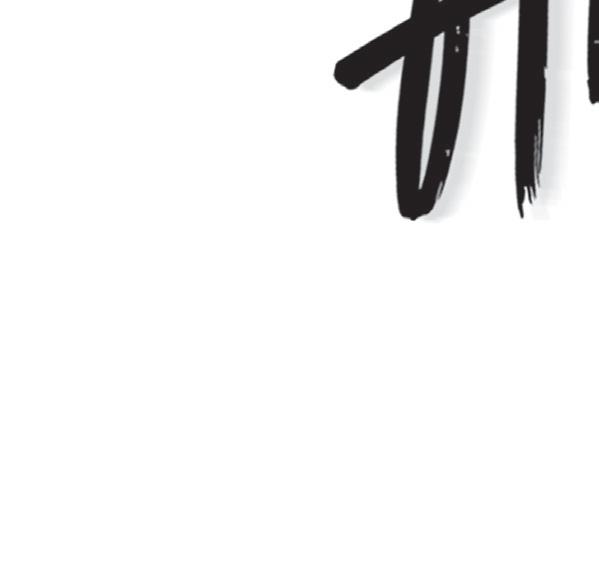
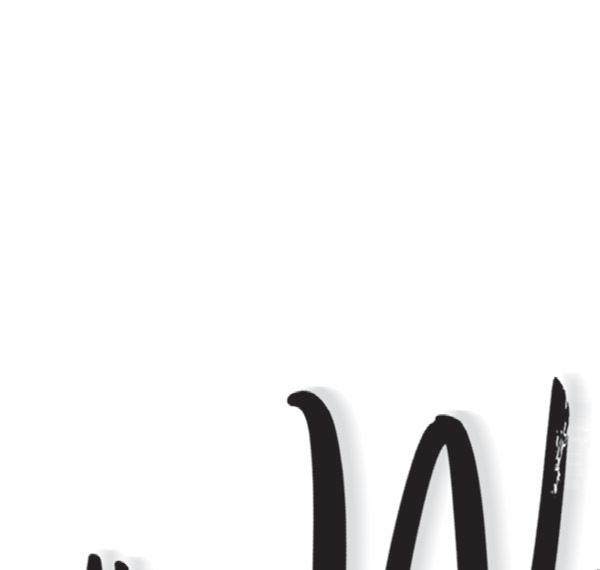
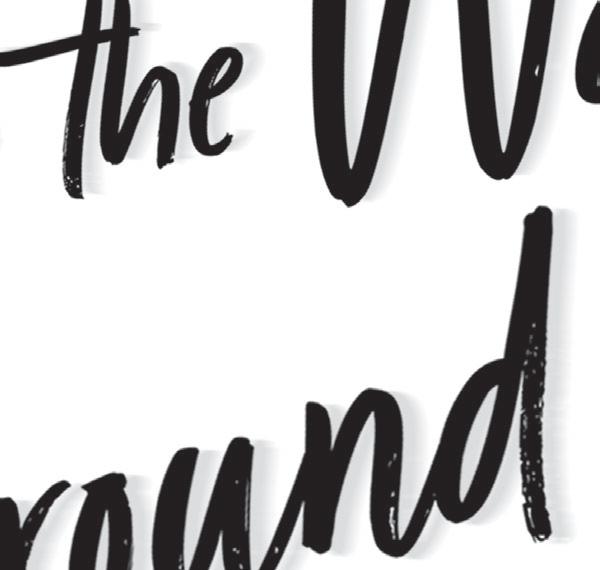
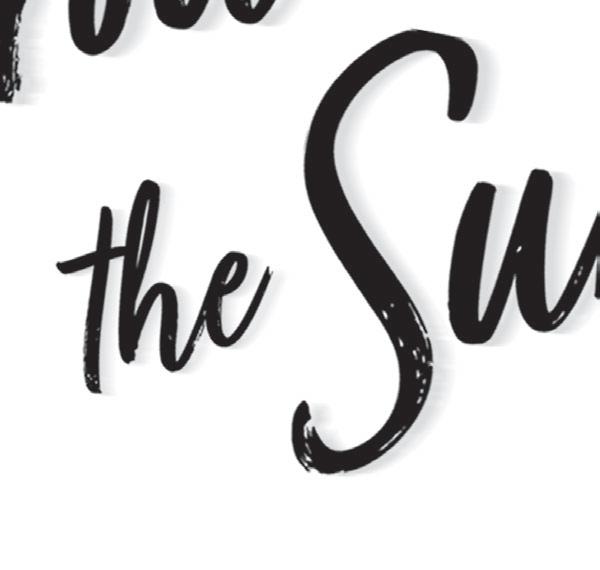

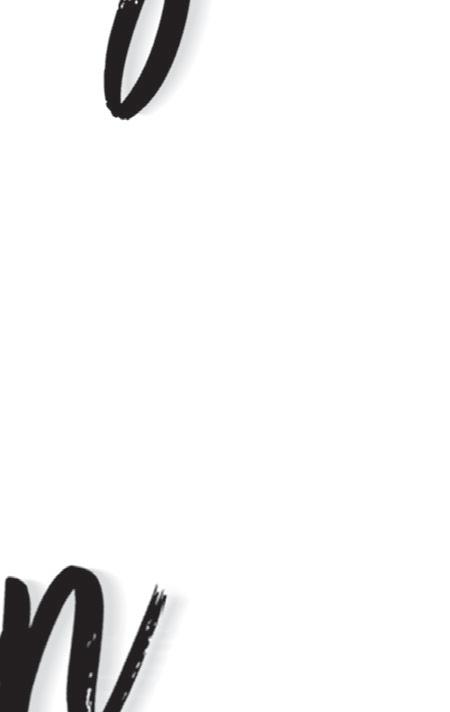


UK | USA | Canada | Ireland | Australia India | New Zealand | South Africa
Penguin Books is part of the Penguin Random House group of companies whose addresses can be found at global.penguinrandomhouse.com. www.penguin.co.uk www.puffin.co.uk www.ladybird.co.uk
First published in the USA by Quill Tree Books, an imprint of HarperCollins Children’s Books, a division of HarperCollins Publishers, and in Great Britain by Penguin Books 2025 001
Copyright © Yuxi Tian
The moral right of the author has been asserted Penguin Random House values and supports copyright. Copyright fuels creativity, encourages diverse voices, promotes freedom of expression and supports a vibrant culture. Thank you for purchasing an authorized edition of this book and for respecting intellectual property laws by not reproducing, scanning or distributing any part of it by any means without permission.You are supporting authors and enabling Penguin Random House to continue to publish books for everyone. No part of this book may be used or reproduced in any manner for the purpose of training artificial intelligence technologies or systems. In accordance with Article 4(3) of the DSM Directive 2019/790, Penguin Random House expressly reserves this work from the text and data mining exception.
Printed and bound in Great Britain by Clays Ltd, Elcograf S.p.A.
The authorized representative in the EEA is Penguin Random House Ireland, Morrison Chambers, 32 Nassau Street, Dublin D02 YH68
A CIP catalogue record for this book is available from the British Library
ISBN : 978–0–241–53263–8
All correspondence to: Penguin Books
Penguin Random House Children’s One Embassy Gardens, 8 Viaduct Gardens, London SW11 7BW
Penguin Random Hous e is committed to a sustainable future for our business, our readers and our planet. is book is made from Forest Stewardship Council® certified paper.
For my grandparents; and for Da Ji Cun, which lives only in memory, and now, the pages of this book
It’s strange to think about how, for me, there is no time before you, but there will be, after. When I came into this world, you were already here, two years ahead of me. I guess that’s what makes it hard to get used to. I guess I’m still getting used to it, even now.
The day you leave for college, we drop you off at the airport. Mama and Baba buy you a one-way ticket to Boston. We’ d never bought a one-way ticket anywhere until then. The ticket sticks out to me the most, the idea that we couldn’t plan for when you’d come back. You are flying into the wider world, and we are letting go of the tether, hoping that you will return on your own. That you won’t get lost in space.
Looking between you and our parents is like two sides of a looking glass. Mama and Baba are teary. But even though you are trying to seem sad too, I can see that you are actually suppressing excitement.
I wonder what I look like.
You give us each a hug outside the security checkpoint. I’ve never seen Baba cry before, but his face leaves damp patches on your shoulder. I mainly just feel curiously detached, as if my body hasn’t quite figured out what’s going on yet.
“Enjoy being an only child,” you whisper, teasing.
“I’ve been waiting all my life,” I retort.
You hug me tight for an instant, and then it’s over. You walk toward the security entrance. Right before you turn the corner, you look back for a moment and flash us a grin. You disappear.
My entire life, I’ve felt as though you were walking ahead and I was following you. When we were young, I remember Nai Nai shouting after you wherever you went, “Deng deng mei mei, wait for your sister!” Me, toddling after. Seeing your back while you headed somewhere else was nothing different for me.
What’s different is that this time, no one asks you to wait. You are really leaving me behind.
I watch you go and know that nothing will ever be the same for me again.
The beginning of life without you.
If we had known then that you wouldn’t return, we would have never let you go. We would’ve forced you into the car and driven all the way back downstate.
We would’ve kept you here.
We would’ve made you stay.
I was getting tired of starting over.
The past year had been full of figuring out how to adjust to our new reality in different ways, but this was the biggest change yet.
I wanted to get on a plane and fly back to the only house I’d known in the United States, back in Mount Pierce, Illinois. Failing that, I wanted to go back to sleep for another three hours.
But in this, like most things, I had no choice.
My alarm clock was ringing. It was morning. I was in San Diego, California. I needed to get to school—my new school— so I could finish out my second semester of senior year, in this place where I had nothing and knew nobody.
Well, not nobody.
My head throbbed. I had a hundred thousand worries here. Almost everything ranked higher than that particular problem. 3
It was seventy-five degrees outside, and we had a palm tree in our new backyard. Two facts that I could not process, given that it was also January. Baba had said when we moved here that it would give us the mood boost we needed, as though all we had been missing was a little bit of sunshine. As though we had just been suffering from an acute case of seasonal affective disorder.
If only it were that easy. I would’ve suggested that Baba simply go out and buy us some SAD lamps instead of finding a job on the other side of the country and uprooting what was left of our lives.
The golden sunlight filtered into my bedroom like a mockery. My window was open. Winter wasn’t supposed to be like this. It just didn’t feel right.
Of course, nothing had felt right since Sam had died, so maybe it didn’t matter.
I put on the first clothes I could get my hands on at the top of my unpacked boxes.
When I got downstairs, Mama was waiting with a fresh steamed bun for breakfast in the kitchen. Baba must have already left for his new job at the cybersecurity company headquartered here.
She raised her eyebrows. “You will wear that to your first day of school here?”
I looked down. I was wearing a pair of gray sweatpants and a yellow T- shirt from being on my old school’s newspaper staff.
The shirt had been washed so many times that the cheap iron- on lettering was crumbling off.
Mama spoke Chinese to me, and I answered, always, in English. It was the way it had been since Sam and I moved to the United States to join them in Illinois, and we started going to school there.
“It’s fine,” I said. “The other clothes smell like travel. I have to do laundry.”
“It’s important to make a good first impression as a new student. The teachers don’t know you yet.” She paused. Her worry pumped through the air in the room. “I still don’t understand why they did not put you in the advanced classes, like you were at home.”
I noticed that home slipped into her phrasing too easily. I was slightly heartened that she, too, still felt as though this were not home yet.
“In Illinois,” she corrected. She looked heavily concerned, an expression I was too familiar with over the past couple of months. There was no detail of my life that was too minor not to fret about, no facet of my future she couldn’t polish over and over in her careful hands. After all, it was only me she had left to mold. I had to fill the place of two.
Under her scintillating attention, I was suffocating. I had to get out of here.
“I don’t know. I will work it out with the school counselors. I’m sure it was just a mistake with the transcript or something when I had it transferred over.”
Her forehead relaxed. “Yes, that would be good. I know you will take care of it. You are good with these things.”
I took the bun and wolfed it down in two bites, even though I wasn’t hungry at all.
“Are you nervous?” she asked, a sliver of her worry creeping back in.
“No,” I said automatically. “Don’t worry about me, Mama. I will be okay. It’s just a new school. I’ll make the adjustment.”
I was so used to lying to her. It came out easy. Like a bird flying, or a tree shedding its leaves in the fall. I lied like it was all I knew how to do.
Weston High School was going to be different. The social hierarchy, the teachers, the curriculum. I knew all that. I was going from a lowly ranked public school with a bare smattering of AP classes to one of the most highly ranked public high schools in the state, with a standout science program, access to college courses at the university, a complete suite of AP and IB classes, two high-tech labs, and a student body that regularly fed to the Ivy League every year.
Yet for some reason, the thing that I couldn’t get over was that Weston had outdoor hallways. I had never seen anything like that before. The corridors had an awning over top but were open- air. They crisscrossed through a large square courtyard.
And the courtyard had orange trees. Seriously, orange trees. I felt as though I had moved to another country, not another state.
Besides that, it meant that a significant portion of the student body could see me walking down the hallway as I headed toward my first class, in my sweats and old T- shirt. I was new, I wasn’t dressed like everyone else, and I looked ridiculous.
People stared.
I tried to ignore them. At the same time, I wanted to stare too. Back home, I had been one of two Asians in our small high school. The other kid was a third- generation Vietnamese guy, while I spent the first eight years of my life in China. To Mount Pierce’s student population, though, we were basically the same.
Here, it was like I had moved back to Asia. If I had to guess, two-thirds of the student population were some kind of Asian. But it wasn’t like being in China. These people were all very American in the way they dressed and the way they looked. I was surrounded by tanned skin, straight white smiles, and glossy hair. The girls had perfect eyeliner that I’d never been able to master. Mine always seemed too thick or too thin, and the flick at the end was never at the correct angle. A lot of girls had dyed hair that started off dark at the roots but lightened to a smooth caramel at the ends.
My flat black hair seemed so boring and unfashionable in comparison.
Behind me, I caught snatches of people speaking Chinese. I turned around, startled. Two girls almost ran into me.
“Watch where you’re going,” one said in perfect English.
They were like me, completely bilingual. Yet they were flipping back and forth in public, as though it were nothing. I never spoke Chinese with anyone except my family.
The girl who had spoken watched me expectantly, as if waiting for an apology. I wanted to say something to her. I wanted to tell her that I was like them. It would’ve been silly, but it was all I could think about.
In the moment, though, I couldn’t summon anything to say in either language. I could see their eyes traveling up and down, taking in what I was wearing.
Before I could say a word, they shrugged and brushed past me, continuing to babble in Chinese about some guy in their AP Chem class.
I stood there for a minute as people rushed around me. I gathered myself, shrugged my backpack on my shoulder, and resumed my path toward Wing C, where my first class was waiting.
I wondered how I was going to navigate this place, so utterly different from anywhere I’d lived before. My life had been uprooted once, when I moved from my grandmother’s small village outside Xi’An, China, to the utter center of the Midwest in Mount Pierce, Illinois. And now, it was being uprooted again. It hadn’t occurred to me that this change might be just as big as the first one.
I sat in the counselor’s office during my lunch period, nervously tapping my fingers against my thigh.
“Let me pull up your current schedule,” the woman behind
the desk said. She was youngish. Maybe in her mid-twenties. Her brown hair was pulled back in a neat ponytail, and she had bright red glasses. “Sorry, the internet is a bit slow today.”
I scanned the walls of her cramped office. I tried to create a plan for what I was going to say to advocate for myself. The Stella of a year ago would’ve written bullet points in advance. But the Stella of a year ago also wouldn’t be in this predicament in the first place.
“You’re enrolled in all standard curriculum for a senior in the state of California, except that we allowed you to transfer over to the AP Literature class here.”
“Yes,” I said. “But I have my transcript from Mount Pierce, and I was in three other AP classes.” I was in all the AP classes that Mount Pierce offered. I handed over the piece of paper to her.
She scanned the sheet. “Right. AP Bio, AP Calculus, and AP European History. I remember.” She hesitated. “Ms. Chen, our curriculum here is rigorous, perhaps even more rigorous than what you’re used to. And your grades the first semester in those courses . . . they aren’t what we’d expect for someone continuing on that track here. Even if you were a current student, we would’ve been having serious discussions around whether you should consider easing up.”
She slid the paper back across the desk. I could see the grades popping back out at me in bold. C- in AP Bio. D in AP Calculus. C+ in AP European History. A- in AP Literature, the one class I’d qualified to keep here.
My parents hadn’t seen these grades. I had quietly ferreted away the copy before we moved and vaguely blamed it on address problems when they didn’t receive anything in the mail.
“I’m sorry. I cannot justify slotting you into those courses here. I would be setting you up for failure, when it will already be difficult to jump into a class halfway through. Second semester is going to go so quickly. There is no time for catch-up.” She tilted her head, not without sympathy.
Seeing the letter grades in front of me felt freshly humiliating. I had never been assigned anything like them in my life, not even when I had first moved to the United States and didn’t speak a lick of English. I wasn’t always straight A’s, like Sam, but I certainly had never sniffed a D before.
“I had extenuating circumstances,” I said.
Her eyes widened. “I see. What might they be? I see you were a good student for much of your high school career. But then, last year was the first year you started taking AP classes. It can be a big adjustment.”
I couldn’t look at her. I stared at the transcript sitting between us. There wasn’t any kind of contextual explanation for your GPA ever on your transcript. It was just a bunch of letters, just your high school achievement boiled down to a single decimal number. It wasn’t as though there could be an asterisk appended to my senior year, indicating that my brother had died. If I wanted people to know that, I would have to tell them.
I realized that this was the beginning of it all.
I would have to tell this woman, whose name I couldn’t even
remember, whom I just met minutes ago. I’d have to write it down in the Common Application so I could tell colleges, probably in response to one of the inane essay prompts like Recount a time when you faced a challenge, setback, or failure; how did it affect you and what did you learn from the experience? Whenever I explained my transcript, I’d have to do it within the structure of that crude framing— something that happened to me and what I learned from it. It felt infantilizing and cruel to assume that there was anything that could be learned from Sam’s death, and it also seemed unbearably crass to use it as a shield for my academic performance.
The woman was waiting for me to respond. I couldn’t.
“It was nothing,” I said finally, my throat so dry I could choke.
She closed her laptop. “It’s fine. It’ll be less stressful this way. You’ll see.”
“How was your first day?” Baba asked at dinner.
We were eating simply because we hadn’t fully unpacked everything yet. Mama had made one dish of tomatoes and eggs and a pot of rice. The rest of the pans were still in boxes.
The house was bare, uncomfortably bare. Everything around us, from the cardboard to the blank walls, reminded me that we were no longer home. I would be here for eight months before college—if that happened— and then I’d be gone. Not enough time, in my opinion, to ever adjust to this place.
In the room between mine and my parents’, Sam’s things sat
in boxes stacked high to the ceiling. I knew they would be the last to be opened. We all seemed to walk more quickly past that doorway, until finally, someone had shut it so we wouldn’t have to see the everlasting reminder of unfinished business.
“Fine,” I said.
“Everyone nice?” Mama asked.
I nodded, although I did not talk to anybody, other than in passing and to introduce myself in each of my seven classes. Nobody was mean, but neither was anyone interested in getting to know me. It seemed that I barely existed. That was okay, though. It was what I expected.
“Good, good,” Baba said. Everything was going according to plan. “Did you see Alan today?”
I shook my head. He was the one person at Weston I knew, and our families went way back.
“It’s a big school,” I said, not wanting to put any significance on whether I’d seen him or not.
Quickly, I changed the subject before they could pry further. “How was your job?”
“Great,” Baba replied. “They have food trucks in the parking lot for lunch. Can you imagine? Food trucks, every day.” He shook his head, like this was an unbelievable extravagance. Toto, we were definitely not in Kansas anymore. I thought about telling him about the outdoor hallways and orange trees, but we were not in the business, ever, of sharing much about our lives. For years, I didn’t even know what my father did. I always said he was a systems analyst, but I wasn’t really sure what it meant, and he
never bothered to tell me. Baba was efficient in his actions and his words. He elicited exactly what information he wanted and never anything more.
Mama worked as a program manager, but she was still interviewing for jobs. All the more time for her to hover. I needed her to be gainfully employed again, and soon.
“Did you fix your class schedule?” Mama asked.
“I’m working on it. It’s going to take a couple of days.” I wasn’t sure what I was going to tell her when my schedule stayed the same through the rest of the semester. But I would buy myself some more time to figure it out.
She frowned. “You have to fix it quickly. You don’t want to miss too much time out of your classes. You’ll fall behind. Especially at a new school. You want to end high school on a strong note. Besides, you have so much to do with college applications. It’s a lot.” She was sharp, apprehensive.
I absorbed her anxiety like a sponge. “I know, Mama.”
Baba cleared his throat. “We have been discussing, and your mother and I—”
My chest constricted, suddenly fearful of what they might say next.
“— decided it might be a good idea to do some college visits this month in California. You’ll qualify for in- state tuition since we’ll be California residents, and there are some very good schools here.”
I put down my chopsticks. This was not what I was expecting. I tried to draw out how I felt about it. Not good.
“In the next few weeks, before applications are due. I know you are still working on them. Maybe this will give you the inspiration you need. What do you think?”
It was clear that this was now going to be my parents’ North Star, getting me into the right college. I was no Sam, of course. With him, going to an Ivy was a given. For me, the expectations were a little closer to earth, but I knew they were still thinking a UCLA, maybe. A Berkeley.
They believed that getting my applications finished was a simple matter of dedicating time and effort. I hadn’t told them the truth. In the past month, as the deadline approached, I’d realized I had a more complicated problem than I could describe.
I was afraid of going to college.
For many people, it was a normal rite of passage. The next step toward independence and adulthood. But eight months ago, my brother had died in his dorm room at Harvard. It would be ridiculous to think that we would all just come out of that unscathed. Yet my family was desperate to try.
The idea of going to college made me ill, filled me with this uncontained fear, no matter how much I tried to reason with myself. I was mostly dealing with the problem by putting it off, thinking maybe it would just go away by itself. Time was the great healer, but I was running out of it. The application deadline for the UCs was in under a month.
“It will take some days away from school,” Mama said. “But this is so important, you know.” Her throat seemed to quaver. “We worry about you, after everything that has happened.”
Baba threaded his hands together on the table, a position I knew to mean he was about to say something serious. “There are moments in your life that are critical and shape the future direction. College is the most consequential decision so far for you. Without it, you cannot succeed in this country. You cannot make a life for yourself. That’s why we worry for you. Do not lose focus. We need to know that you are still on the right track. We are thinking this trip will help you.”
They were both looking at me with a mixture of hopefulness and uncertainty.
I could hardly stand their expressions. The expectation laden in their eyebrows. The desperation pulling at their cheeks.
But it was easy to make their troubles slide away. It was a gracious power, and I exercised it generously. I could always say the right things, put forward the words they wanted to hear, and they would fade back into a numb comfort.
I shaped my face into an imitation of a smile. “Okay,” I said. “That sounds like a good idea.”
Their faces gleamed back at mine, two worthy mirrors.
Sometime in the middle of my second week, I sat in US Government, my eyes on the sweeping second hand of the clock over the door, my mind wandering to a different plane.
Given the state of my grades this year so far, I should’ve been more focused on what was going on in the class, but I couldn’t make my brain do much of anything these days. Soon, we’d be going on a road trip through California to see a series of colleges that I might never be attending, if I couldn’t get over my mental block.
I pushed the thought away.
“Okay,” the teacher said. His name was Mr. Starnes. He was tall, mildly balding, and gangly; a perfect prototype of a US Government teacher. “You’re going to need to pair up for the next project, because we will be doing debates.”
I straightened up and scanned the room. People were already
making eye contact with one another and scooting close to each other. I hated this. It was like picking teams in gym. I was at a massive disadvantage.
Predictably, I watched as everyone else grabbed a person right away. I was left looking to my left and right and seeing no leftovers.
“Anybody not paired up?” asked Mr. Starnes. “Ah, yes, Stella. Morgan over there needs a partner as well. Why don’t you move over and join her?”
I grabbed my bag and trudged across the room to the empty seat next to hers. I recalled that her last name was Park, so she must be Korean. She had straight- across bangs and an understreak of blue.
“Hi. Sorry you have to be stuck with the new girl,” I said, trying to break the ice with a little self- deprecation.
She shrugged and summoned up a huge sigh, as though she had, indeed, drawn the short straw. I felt chastened.
“Where are you from again?” she asked.
My defensiveness kicked in, having gotten that question from a countless parade of people in my life, ranging from curious to hostile. “China,” I responded, shortcutting to the answer I assumed she wanted.
“No, no,” she said impatiently. “I meant where did you move from. I forgot what Mr. Starnes said when you joined.”
“Oh. Illinois.”
“Like, Chicago?”
“No. Mount Pierce.”
“Where is that?”
“It’s downstate.”
She wrinkled her nose. “What did they have there?”
I didn’t know what to say. There were no identifiable landmarks, other than the midsize telecommunications company Baba had worked at. “Corn, I guess. It was small.”
She frowned, as though she couldn’t contemplate such a place. “I didn’t know there were any Asians there.”
It was my turn to shrug. “There weren’t that many.”
“Weird,” she said. I couldn’t decide whether her statement was a pronouncement on me, Mount Pierce, or my place in it. I felt oddly protective of my home. For all its flaws and my rocky start there, it was still unquestionably a big part of me. I hadn’t ever expected to move somewhere that would look down on it.
My locker was on the opposite side of the school from my last class of the day. As I walked down the long, beautiful outdoor path to the building on the other side, peering at groups of students chattering along the stretch, I wondered if I would ever make any connections here. It was brutal to move during the final semester of senior year. While I couldn’t blame Baba for wanting to start over somewhere away from all the memories, it was impossible for me to extinguish the small flame of resentment I held against him.
I wanted to feel the familiar. I didn’t need sunshine and citrus. Beaches weren’t as appealing with no one to go with. I wanted
gray skies and movie theaters with my friends. I even missed the icy winter blasts I would’ve been braving to the parking lot every day at this time of year.
I opened the double doors into the building and turned the corner. There, right down the hallway, unmistakable as day, was Alan Zhao.
It had been four years since we’d last crossed paths, but I still recognized him. He was tall now, taller than the two Asian guys he was walking with. He had rectangular black glasses, a straight nose, and a neat haircut, revealing a high forehead. He was tanner than I remembered, maybe a consequence of becoming a California transplant. He looked relaxed and happy. He was chuckling with his friends.
A few things happened in quick succession.
His eyes caught mine.
I felt a hard swoop in my stomach.
I immediately turned toward the closest wall to face a bulletin board of student extracurricular activity announcements.
I hadn’t prepared for this moment. For some reason, having not seen him thus far made me believe that maybe I just wouldn’t see him at all. It was a big school. As I understood it from my parents, he was a fantastic student, so he was probably in all those advanced classes the counselor refused to bump me into.
Hearing his voice behind me now, it was clear what an unrealistic assumption that was. There was no way I wouldn’t run into him, sooner or later.
He had seen me, for sure.
I held my breath, bracing for him to call out to me or tap me on the shoulder. But it never came. I heard his laughter as he passed me by. Within a minute, his voice had disappeared. He was gone.
Embarrassment filled me to the brim, then a simmering anger. I couldn’t believe my first reaction was to hide, as though I were the one who had something to be ashamed of. It turned out, although he had grown up and much about him had changed, the one constant was still that he wouldn’t be caught dead around me.
I was about to turn back to my locker when one of the flyers on the bulletin board grabbed my attention. The school newspaper was looking for more writers this semester. There was an email contact if you wanted information. I pivoted away without allowing myself to linger. If I couldn’t get my grades up this semester, I couldn’t get distracted with extracurriculars. I had to keep my focus.
I packed my things and headed out into the winter sun, trying to shake Alan’s face, the snapshot of his smile just before my eyes slid away.
I splayed across my bed. My laptop was open in front of me to the Common Application.
All I had left to do was just write a personal essay and hit Submit. I could write about anything. It didn’t even have to be particularly good. I could generate a couple of paragraphs of
bland garbage and call it a day. But I had reached this point two months ago and still hadn’t gotten any further.
I kept thinking about what it was like when Sam applied for college. A whole different situation. We had gone on an entire college tour up and down the Eastern Seaboard. I remembered Sam’s energy back then, his repressed excitement. Even though he was quiet, I could see the shine in his eyes.
I watched him, jealous and itchy that I would have to wait another two years for my turn. College would be a whole new world. He knew he was going to be free. That’s what we thought.
Now I sat in my new room, in the same life stage as he once was. The screen was too bright. The air was too warm. My clothes scratched at my skin from the new detergent Mama bought, different from what we used in Illinois. Even the small things had to be all wrong.
I opened the window and then closed it again. I tried to meditate using an app I downloaded. Nothing was working. Whenever I pulled up the tab on my browser for the Common App, my anxiety spiked. My heart went at an unnatural gallop. My palms went suddenly damp.
A medical condition, maybe. I could ask my parents to take me to a doctor, get it checked out. Something was deeply wrong with me. The idea of going to college, going away from home, like Sam did, made me physically ill. This was not normal. I knew that. It was debilitating enough, enormous enough, that I
was not sure I could fix it by myself, much less in the span of the few weeks I had left before applications were due.
But I couldn’t bring it up with my parents.
For the past six months, I’d developed acute insomnia, where I couldn’t fall asleep for hours. At first, I’d tried just lying still with my eyes closed and blanking my mind— the standard advice. I tried counting sheep. I tried spinning up stories to lull myself into slumber. I tried reading boring books before returning to bed. I couldn’t beat it. Eventually, I gave up and just started scrolling on my phone, even though screen time supposedly made it worse.
You could tell by the circles under my eyes after a week of really bad insomnia. I could see it in the mirror when I brushed my teeth in the morning.
Mama and Baba never said a thing.
Such was the precarious state of our equilibrium, after Sam. We didn’t ask too much of each other. I didn’t ask them about the throaty hacking sounds I heard from their room in the middle of the night. They didn’t ask about why I couldn’t sleep.
How could I introduce my existential fear of college to them, if we couldn’t even talk about something as concrete as insomnia?
I closed my laptop after an hour, my cursor still in its blinking position on a blank page. My bones ached. I felt exhausted, although I knew I was doomed for another night of staring at the ceiling.
There was a knock at my door.
“Liang Liang?” Mama said. “Can we come in?”
I sat up and instinctively attempted to straighten up my bed. “Yeah. What’s up?”
My parents both stepped inside, their hands folded. I felt taut as a bowstring. Somehow, I knew before they even said anything that something was wrong.
“There’s been a bit of a change in plans,” Baba said. His face was pained, but he was trying to draw it into a gargoyle optimism that looked far worse than the alternative. “Something has come up in China. Your mama and I have bought tickets to return in two weeks.”
“In two weeks?”
They nodded.
Without you was the unspoken part.
My parents watched me carefully. The bed beneath me felt like water. I was floating unsteadily, across the deep blue. A lake, or the Pacific Ocean. Waiting to be pulled out; waiting to drown.